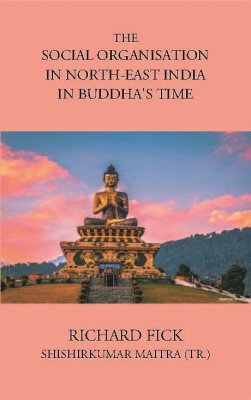THE SOCIAL ORGANISATION IN NORTH-EAST INDIA IN BUDDHAŌĆÖS TIME(Hardcover, RICHARD FICK, SHISHIRKUMAR MAITRA)
Quick Overview
Product Price Comparison
About the book:-The author has made a good attempt to unearth the social system in North-East India in BuddhaŌĆÖs time. He has placed the culture which the Jatakas exhibit in north-eastern India, will, he hopes, not provoke any opposition. For although most of the stories contained in our sources are, so far as their contents are concerned, the common property of the Indian people and were known all over India, yet in the form in which they appear in the Jatakas, they belong to a particular part of India, namely, the north-east, the home of Buddhism. The Jataka tales are a voluminous body of literature native to India concerning the previous births of Gautama Buddha in both human and animal form. The future Buddha may appear as a king, an outcast, a god, an elephantŌĆöbut, in whatever form, he exhibits some virtue that the tale thereby inculcates. Often, J─ütaka tales include an extensive cast of characters who interact and get into various kinds of trouble - whereupon the Buddha character intervenes to resolve all the problems and bring about a happy ending. This work has been selected by scholars as being culturally important, and is part of the knowledge base of civilization as we know it. This work was reproduced from the original artifact, and remains as true to the original work as possible. About the Author:-Sisir Kumar Maitra was Head of the Department of Philosophy and Dean of the Faculty of Arts, Banaras Hindu University. His writings compared Eastern and Western philosophy, and the teachings of Sri Aurobindo in comparison with Western philosophers. Maitra was brought up free from social and religious orthodoxy. He was also a great admirer of Rabindranath Tagore, and this was part of the intellectual atmosphere. Later he discovered Sri Aurobindo, and in a number of books and essays helped popularise the vision of Sri Aurobindo among philosophical circles both in India and abroad, writing strictly from an academic philosophical point of view. Richard Fick was a


